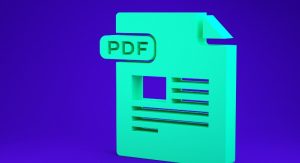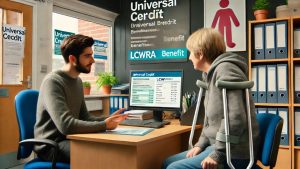Are you wondering whether you need to declare your self-employed income if it’s under £1000? Let’s explore the tax rules for self-employed individuals in the United Kingdom.
Do I Have to Declare Self Employed Income Under £1000 in the UK?
The UK introduced the Trading Allowance from April 6, 2017, which allows individuals to earn up to £1,000 of gross income (before any expenses) without having to declare it to HMRC or file a tax return. This exemption applies to self-employed individuals and does not include partnerships.
For example, if you have a small gardening business and your income in the tax year is £900, you are covered by the trading allowance and do not need to report this income or pay tax on it.
Additionally, you can choose to claim either the trading allowance of £1,000 or business expenses, but not both. If your income is higher than £1,000, you will need to register for self-assessment and file tax returns.
Knowing the self-employed tax threshold and understanding the income declaration process is crucial. Let’s delve deeper into how the Trading Allowance works for self-employed individuals in the UK in the next section.
How Does the Trading Allowance Work for Self-Employed Individuals?

The trading allowance of £1,000 allows self-employed individuals to deduct this amount from their income before calculating their taxable profits. If your annual gross trading income is £1,000 or less, you are not required to inform HMRC unless there are circumstances where you must register for self-assessment and declare your income on a tax return.
It is important to keep records of your income if you choose to use the trading allowance. If your gross income from trading or property is more than £1,000, you can use the tax-free allowances instead of deducting any expenses.
Trading Allowance Example
Emily is a self-employed graphic designer. In the tax year, her gross trading income is £800. Since her income is below the self-employed income declaration threshold of £1,000, she is not required to inform HMRC about it or file a tax return. Emily decides to use the trading allowance and does not deduct any expenses. As a result, her taxable profits for the year remain at £800.
However, if Emily’s gross trading income was £1,500, she would need to declare this income to HMRC and file a tax return. In this case, Emily can choose to either use the trading allowance and deduct £1,000 from her income, resulting in taxable profits of £500, or claim her business expenses instead of using the trading allowance.
Benefits of Using the Trading Allowance
The trading allowance provides several benefits for self-employed individuals:
- Lower administrative burden: If your income is below the self-employed income declaration threshold, you can avoid the hassle of informing HMRC and filing a tax return.
- Simple record keeping: By using the trading allowance, you can keep your records straightforward as you don’t need to track and deduct business expenses.
- Flexibility: If your gross income from trading or property is more than £1,000, you can choose to use the tax-free allowances instead of deducting expenses. This gives you the opportunity to optimize your tax position based on your specific circumstances.
It is important to note that although you may not be required to declare income below £1,000, you should still keep accurate records of your income and expenses. These records will be useful for any future tax inquiries or audits.
Trading Allowance vs. Business Expenses
When deciding whether to use the trading allowance or claim business expenses, consider the following:
| Trading Allowance | Business Expenses |
|---|---|
| No need to track and deduct individual expenses | Can deduct specific expenses related to your business |
| Simple record keeping | Requires detailed record keeping for all expenses |
| Can be beneficial if your expenses are below the trading allowance threshold | Allows for a potentially larger deduction if you have significant business expenses |
Ultimately, the choice between the trading allowance and claiming business expenses depends on your individual circumstances and the amount of expenses you incur. It is advisable to consult a tax professional or HMRC for personalized advice to ensure you are making the most tax-efficient decisions.
Next, let’s explore the property allowance and its implications for individuals with income from land or property.
What About Property Income and the Property Allowance?
In addition to the trading allowance, individuals in the UK who earn income from land or property also have a property allowance of £1,000. This allowance provides some relief for those with property income, ensuring that they do not have to report their earnings to HMRC if it falls below the threshold.
If your annual gross property income is £1,000 or less, you are not required to inform HMRC about this income, as long as you can make use of the allowances available. However, if your property income exceeds £1,000, you will need to declare this income on your tax return.
It is important to keep in mind that the property allowance cannot be used to create a loss by deducting more than your actual income. When using the property allowance, you can only deduct up to the amount of your income.
Similar to the trading allowance discussed earlier, if you have both trading and property income, you can claim the £1,000 allowance for each income type.
To provide a clearer understanding of this topic, the table below compares the reporting requirements for different income levels:
| Income Level | Tax Reporting Requirements |
|---|---|
| £0 – £1,000 | No need to inform HMRC unless unable to use the allowances. |
| £1,000 – above | Declaration of property income is required on tax return. |
By understanding the property allowance and its reporting requirements, self-employed individuals in the UK can ensure compliance with tax regulations while taking advantage of the available allowances.

Additional Information:
It is important to note that if your property income exceeds the £1,000 threshold and you have other sources of income, such as self-employment earnings, you may need to register for Self Assessment to declare all your income.
When Do I Need to Register for Self Assessment?
If you become self-employed and expect to earn more than £1,000, you need to register for Self Assessment. The deadline for registration is 5 October of the following tax year. However, if your gross income for a tax year is more than £1,000, you must register for Self Assessment by 5 October in the following tax year.

It is important to note that even if your income is £1,000 or less, there may be circumstances where you choose to complete a tax return or need to register for Self Assessment, such as claiming losses or paying voluntary Class 2 National Insurance contributions.
“If you become self-employed and expect to earn more than £1,000, you need to register for Self Assessment.”
Registering for Self Assessment with HMRC is a crucial step for self-employed individuals, even if their income falls below £1,000. It ensures that you comply with the tax regulations and obligations, and also enables you to claim any allowable deductions or benefits such as losses or voluntary contributions.
By registering for Self Assessment, you create an official record of your self-employment with HMRC. This record serves as proof of your income and can be useful when applying for loans or mortgages in the future. It also allows you to access other benefits that may be available to self-employed individuals.
Deadline for Self Assessment Registration
The deadline for registering for Self Assessment is 5 October in the following tax year. For example, if you start your self-employment in the tax year 2022/2023 and expect to earn more than £1,000, you must register by 5 October 2023. It’s important to register on time to avoid penalties or late registration fees.
While the £1,000 earnings threshold determines the requirement to register, there are exceptions and additional factors to consider. If you have any doubts about your self-employment status or need assistance with registration, it is advisable to seek guidance from HMRC or consult with a tax professional.
| Income Amount | Registration Requirement |
|---|---|
| Below £1,000 | No registration required, but voluntary registration is possible |
| Above £1,000 | Registration required by 5 October in the following tax year |
It’s worth noting that registering for Self Assessment also opens up opportunities to claim tax refunds, reduce your tax liability through allowable deductions, and ensure you are fully compliant with HMRC requirements. Being proactive about your self-employment income declaration can help you avoid any potential penalties or issues in the future.
HMRC Casual Earnings Limit
| Category | Details |
| Personal Allowance | £12,570 for the tax year 2023/2024. If your total earnings (including casual work) fall below this threshold, you won’t pay income tax. |
| National Insurance Contributions (NICs) | You must pay Class 1 NICs if you earn more than £242 a week from casual or part-time work (2023/2024 threshold). |
| Self-Employed Casual Earnings | Casual earnings need to be reported as part of your self-assessment if self-employed. Tax may be due depending on total income. |
| Tax Code | Your tax code determines the amount of tax deducted from your casual earnings. Contact HMRC if your tax code needs adjustment. |
| Student Earnings | Students can earn up to the personal allowance (£12,570) without paying tax. Earnings above the weekly NIC threshold (£242) may incur NICs. |
| Reporting Casual Earnings | Even if your earnings are below the personal allowance, report them to HMRC to ensure proper tax and NICs management. |
Reporting Casual Earnings
Even if your earnings are casual and below the personal allowance, it’s essential to report them to HMRC to ensure you’re paying the correct amount of tax and National Insurance.
If you have specific concerns or detailed queries regarding casual earnings, it’s advisable to contact HMRC directly or consult with a tax professional.
Conclusion
In conclusion, if you are self-employed in the UK and your income is below £1,000, you are not required to report it to HMRC or file a tax return. This exemption is made possible by the Trading Allowance introduced from April 6, 2017. However, it is important to note that you should still keep records of your income if you choose to utilize the trading allowance.
If your income exceeds £1,000 or if there are circumstances that require you to register for Self Assessment, it is crucial to adhere to the UK tax rules for self-employed individuals and declare your income accordingly. It is recommended to seek personalized advice and guidance from a tax professional or HMRC to ensure compliance.
By understanding the self-employed income threshold and abiding by the UK tax rules, you can ensure that you stay on the right side of the law and fulfill your tax obligations. Remember, accurate reporting and compliance are essential for maintaining the integrity of the tax system and avoiding potential penalties or legal issues.
FAQ
What happens if my self-employed income is exactly £1,000?
If your gross trading income is exactly £1,000, you are still within the Trading Allowance limit and do not need to declare this income to HMRC. You can choose to either use the Trading Allowance or claim allowable business expenses; however, using the Trading Allowance is generally simpler if your expenses are minimal.
Can I choose to declare my income even if it’s under £1,000?
Yes, you can choose to declare your income even if it is below £1,000. This may be beneficial if you want to establish a formal tax record or if you have other tax considerations that necessitate reporting your income.
What should I do if my earnings exceed £1,000?
If your gross trading income exceeds £1,000, you must register for Self Assessment with HMRC and file a tax return by the deadline (5 October of the following tax year). This registration allows you to declare your income and pay any taxes owed while also potentially claiming deductions.
What records should I keep if I’m using the Trading Allowance?
Even though you are not required to report income below the Trading Allowance threshold, it’s important to keep accurate records of your income and any relevant documentation. This practice helps ensure compliance and can be useful in case of future inquiries from HMRC.
Are there any exceptions where I might need to register for Self Assessment even if I earn under £1,000?
Yes, there are certain circumstances where you may need to register for Self Assessment even if your income is under £1,000, such as if you wish to claim losses, pay voluntary National Insurance contributions, or if your overall income from multiple sources exceeds the taxable threshold. Consulting HMRC or a tax professional can provide clarity based on your specific situation.
Do I Need to Do a Tax Return if I Earn Under 10,000?
If you earn under £1,000 from self-employment, you do not need to file a tax return due to the Trading Allowance. If your income is between £1,000 and £10,000, you must register for Self Assessment and submit a tax return. If you have other sources of income that exceed your personal allowance, you may also need to file a tax return, regardless of your self-employed income level.




